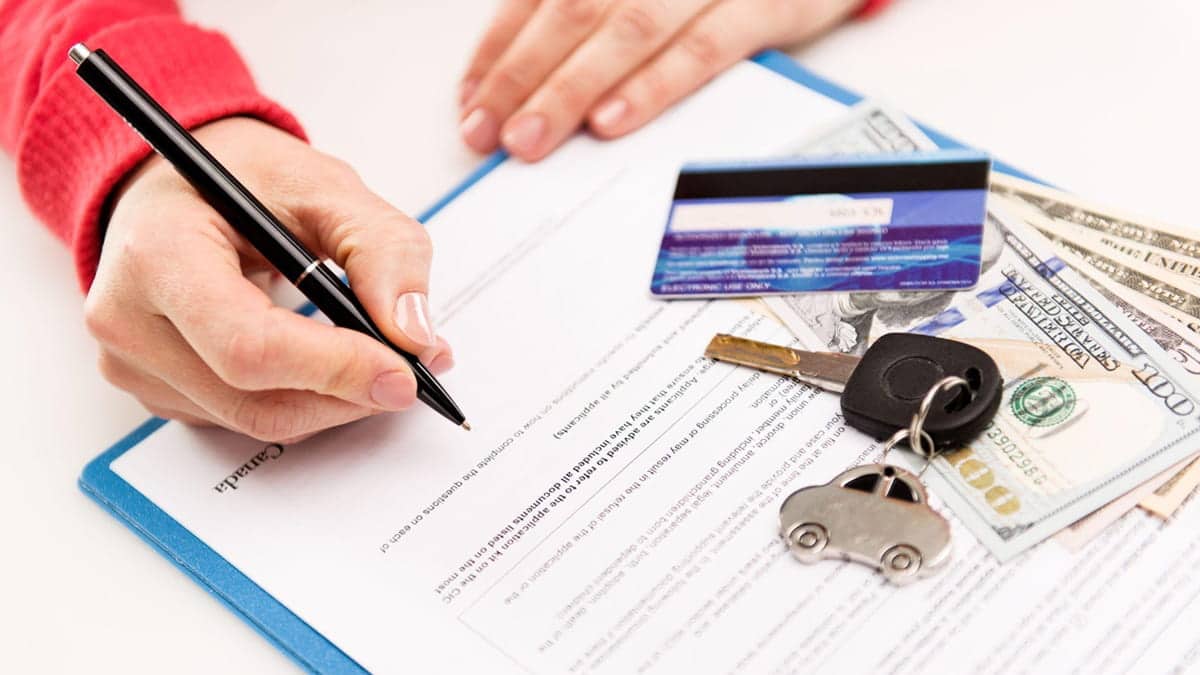How Does a Lease Work – 4 Pro Tips to Get the Best Lease Terms
Important Note: When you buy through our links, we may earn a commission. As an Amazon Associate we earn from qualifying purchases. Content, pricing, offers and availability are subject to change at any time - more info.
Car leasing may be very attractive to some people. Monthly payments for a leased vehicle tend to be less than financing, and you can drive a new leased car every few years. Leasing has been growing in popularity over the past few years, and banks encourage this as a purchase option to get a new car. Yet, how does an auto lease work?
Advertisement
What Is an Auto Lease?
Vehicle leasing is like a long-term rental agreement. There may or may not be an upfront deposit, plus there is a monthly payment. Then you receive a new car that can be used for several years during the lease period before having to return it. If you like the car, then there is the possibility to buy it for a predetermined price at the end of the lease.
At the end of the lease period, you can choose whether you lease a new vehicle, payout the lease and buy it, or go without a car.
How Does a Lease Work?
The monthly lease payment is calculated on the car’s depreciation (difference between current value and end of lease value) with interest and added fees. Your lease contract outlines:
- How much needs to be paid at the beginning of the lease
- The length of the lease
- Depreciation
- Fees at the end of the lease
- Termination fees for early cancellation
- Allowable mileage
- Definition of normal wear on vehicle
- What transpires if a payment is missed
The car will need to be returned in good condition at the end. If you do any customizations prior to the lease end, they must be removed before giving it back.
Advertisement
How Do I Get the Best Lease Terms?
1. Make Multiple Security Deposits. Most leasing options require you to make a security deposit which equals one monthly payment rounded to the closest $50. Some lenders will reduce your interest rate (money factor) if you pay two completely refundable security deposits prior to leasing your vehicle. Lower interest rates mean a reduction in monthly payments. The financing cost will be lower for leasing your vehicle each month and the lease term.
Note that this isn’t an option for all leasing programs. Some companies that permit multiple deposits will limit the number of security deposits you are able to make. Also, advertised lease specials contain lower interest rates. Spending more on a security deposit to reduce already low rates may not make sense.
2. Customize Mileage to Suit Your Lifestyle. It is a consensus that leasing is detrimental to people who drive a lot. Leasing can be advantageous for those who do a great deal of driving depending on how the lease agreement is established.
Depending on the type of car, you may be able to receive a high-mileage lease. This will permit an additional 33,000 miles annually over the usual 12,000.
Determining vehicle mileage limits isn’t difficult. Just request a larger mileage allowance before signing your lease. They won’t come without a cost, and your payment will be increased. However, this increase in the monthly lease payment may work well if you are unsure if you want to make a long-term investment in a car.
As a high-mileage driver, the payments may be lower than if you purchase the vehicle – even with the extra mileage coverage built-in. Also, you may end up paying past the mileage limit at the end of the lease anyway. It may be a better strategy to simply factor it in.
Advertisement
3. Do a One-Pay Lease to Save Money. Some companies will give you a deal on lease interest costs if the whole lease is paid upfront. This is called the single-pay/one-pay lease.
Aside from saving on interest, single-pay leases can help if you aren’t qualified for leasing. Someone who just moved to the country or has no credit history may find it hard to qualify. Paying the lease upfront generally gets you approved.
This is also helpful if your intent is to buy a new vehicle with cash. As opposed to making a cash payment to buy a car, do a one-time lease. Then buy the vehicle when the lease expires.
This will provide you with flexibility. Depreciation won’t be a concern if you don’t like the car, or if you need to cancel the lease prior to expiration. It allows you to hold money for an extended time or to bank money to purchase the full amount later.
For this option, call your lender and ask:
- What occurs to unused payments should I get out of the lease early?
- If my car is written off, will I be refunded my payments for months I paid but did not use it?
- How much is saved by paying up front?
Armed with this knowledge, you can make an educated decision on whether this is feasible for you or not financially.
4. Leave a Lease Prior to Expiration- Without Penalties! If you are leasing, and want to end the contract early, you can get someone to take over lease payments. Websites are available to help with takeovers of leases which can save on fees and penalties.
Advertisement
80% of leases may be transferred. LeaseTrader will post the car for a fee and connect you with interested buyers. Agents will guide you and the person taking over the lease through the necessary paperwork to transfer the lease.
Even after a lease has been transferred, some lenders may need you to retain “post-transfer liability” for the car. Your name remains on the lease which means you can be responsible for missed payments, excess mileage, or end of lease fees.
How a lease works is simply a matter of calculating principal plus interest (including depreciation). This will give you your monthly payments. There are ways of decreasing these payments as described above if you are able to.
You also have the option of extending your lease should you need to. If you are unsure of what you want your next vehicle to be or whether to purchase your existing one, you do have the option of extending the lease.
Most companies do a month-to-month extension, and others may require an extension for a set time like three or six months. Extensions are generally capped at one year. Payments each month are the same, and monthly mileage doesn’t change.
These are great tips to save some money and get a leasing term that suits you.




 Please Support Me on Ko-fi
Please Support Me on Ko-fi